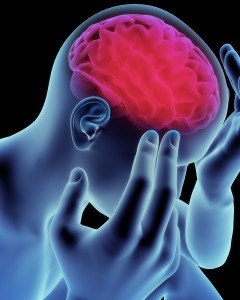
What Types Of Traumatic Brain Injuries Can Be Caused At Birth?
 Traumatic brain injuries (or TBIs) can have serious complications and cause challenges for victims at any age. However, some brain injury victims never get to experience life without brain damage and resulting medical conditions. This is because many types of brain injuries can occur during childbirth.
Traumatic brain injuries (or TBIs) can have serious complications and cause challenges for victims at any age. However, some brain injury victims never get to experience life without brain damage and resulting medical conditions. This is because many types of brain injuries can occur during childbirth.
If your child suffers a traumatic brain injury at birth, you will likely be facing years of expenses including additional medical care, medical equipment, specialist appointments, therapy, special education, assisted living, and more. Depending on the severity of a brain injury at birth, some children may never be able to attend regular school, hold down a job, or even live independently. As you can imagine, such brain injuries resulting from childbirth can not only result in substantial financial costs over the course of the child’s life, but also in significant physical and emotional struggles for both parents and the child.
If your child suffered a traumatic brain injury at birth due to the negligent act or omission of a doctor or other medical professional, you and your child deserve to be fully and fairly compensated for all of your related losses. An experienced Florida brain injury attorney at the Dolman Law Group can evaluate your case and assist you in receiving the settlement or award you deserve. Medical malpractice and brain injury claims may be complex, so you always want to be sure you have a lawyer representing you who knows how to handle this particular type of case. Call our Clearwater office today at 727-451-6900 for a free, no-obligation consultation today.
Causes of brain injuries at birth
Brain injuries rarely occur at birth without some type of negligence on the part of the medical staff. The three main causes of birth-related TBI are as follows:
- Head trauma
- Hypoxia,1 which is decreased oxygen flow to the brain
- Ischemia,2 which is decreased blood flow to the brain
These different occurrences have the potential to cause many different conditions in newborn infants, including but not limited to the following:
- Caput succedaneum
- Head deformity
- Cephalohematoma
- Subgaleal, subdural, subarachnoid, or epidural hemorrhage
- Cerebral palsy (CP)
- Perinatal asphyxia
- Erb’s palsy
Information on Cerebral Palsy
Cerebral palsy is perhaps the most familiar and common condition that results from brain injuries prior to or during birth, as the Centers for Disease Control and Prevention (CDC) reports3 that an estimated one in 323 children have been diagnosed with some form or degree of CP. The symptoms of CP may not be readily noticeable and are often discovered gradually as babies develop. Specifically, CP disorders affect various physical abilities in a victim, including sensory abilities, balance, coordination, muscle stiffness, and may even cause paralysis. Only 58 percent of patients with CP are able to walk independently and nearly one-third are never able to walk at all. Though the symptoms of cerebral palsy do not usually continue to worsen as a victim ages, there is no known cure for CP and therefore the condition is permanent for the duration of a victim’s life.
The physical limitations of CP can have a substantial effect on a patient’s life, including work, school, and the ability to ever live on their own. Necessary medical equipment can include wheelchairs, lifts, braces, walkers, and other related physical assists. In addition to the expense of such equipment, a child with CP will also likely be limited in professional and personal opportunities, as well.
If your child has suffered CP or any other type of brain injury due to medical negligence at birth, you should not delay in contacting an experienced Florida brain injury attorney to discuss a possible case today.
Dolman Law Group
800 North Belcher Road
Clearwater, FL 33756
727-451-6900
https://www.dolmanlaw.com/legal-services/brain-injury-attorneys/
References:
1http://en.wikipedia.org/wiki/Hypoxia_%28medical%29
2http://en.wikipedia.org/wiki/Ischemia
3http://www.cdc.gov/ncbddd/cp/research.html





